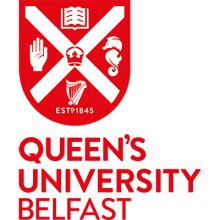
Donald Trump cited academic research as the evidence base for a major decision – the only trouble was that the decision was to pull out of the Paris climate agreement and he had “badly misunderstood” the research. “Even if the Paris Agreement were implemented in full, with total compliance from all nations, it is estimated it would only produce a two-tenths of one degree Celsius reduction in global temperature by the year 2100,” the president said in making the announcement. “Tiny, tiny amount,” he said, as he made a tiny gesture with his famously tiny hands. Reuters said on 2 June that the claim was “attributed to research conducted by MIT” in White House documents it had seen. “We certainly do not support the withdrawal of the US from the Paris Agreement,” said Erwan Monier, a lead researcher at the MIT Joint Program on the Science and Policy of Global Change, and one of the study’s authors. “If we don’t do anything, we might shoot over five degrees or more and that would be catastrophic,” said John Reilly, the co-director of the programme, adding that MIT’s scientists had had no contact with the White House and were not offered a chance to explain their work.
Students sitting final exams at the University of Edinburgh received a heart-stopping message via email: “Graduation ceremony cancelled – no award”. “We are now advised that you are not expected to complete your studies until later in the year, and therefore we presume that you may be eligible to attend the next available graduation ceremony,” the email continued. After queries from worried students, “the university quickly apologised for the confusion, assuring students eligible to graduate that their ceremonies would go ahead as planned”, The Guardian reported on 1 June. “This email was issued in error so please ignore it. No graduations have been cancelled,” said a message to students from Barry Neilson, Edinburgh’s in-this-context gloriously mistitled “service excellence programme lead”.
A new statue in a Moscow park dedicated to the anonymous peer reviewer may soon become a site of pilgrimage for academics, its creator has said. Unveiling the 1.5-tonne stone die honouring the unpaid and largely unloved scholars, Igor Chirikov said he hoped that academics would visit the monument to touch the messages chiselled on its sides, The Guardian reported on 29 May. “Researchers from across the world will visit to touch the ‘Accept’ side in the hope that the gods of peer review will smile down upon them,” said Dr Chirikov, director of the Centre of Sociology of Higher Education at the Higher School of Economics. The die – fashioned from a large chunk of concrete outside the Moscow university – was funded by a crowdfunding campaign that quickly raised $1,300 (£1,000), and was backed by graphene discoverer Sir Andre Geim, from the University of Manchester, among others. “I wanted to emphasise reviewers’ impact on research, on one hand, but to do this with a bit of irony on the other hand so as to motivate researchers who don’t always get positive reviews of their papers,” added Dr Chirikov.
“Female students at the University of Sydney say they are ‘fed-up and disgusted’ by the entrenched sexism and ‘root-and-boot’ culture of young men from the elite St Paul’s College, after another damning Facebook post surfaced this week,” News.com.au reported on 31 May. “The post – which was originally published in March – compares sex with larger women to ‘harpooning a whale’, and advises college men on how to ‘get rid of some chick’ after ‘rooting’ her.” The website added that students at St Paul’s College had been “exposed in 2009 after students there created a pro-rape Facebook group”, while some students associated with that group have gone on to work in “investment banking, the law, and property development”. The university’s vice-chancellor, Michael Spence, said the college has a “deep contempt for women”. Following the latest outcry, the college said it wanted to join a university-wide review of college culture, which it previously said it would boycott.
Queen’s University Belfast has announced the “untimely and sudden” death of Patrick Johnston, its vice-chancellor. Professor Johnston, 58, had led the Northern Irish institution since March 2014. James O’Kane, registrar and chief operating officer at Queen’s, said in a statement issued “with a deep sense of shock and loss” that Professor Johnston had died on 4 June. “We extend our deepest sympathies and condolences to Iseult, his wife, and their four boys, Seamus, Eoghan, Niall and Ruairi, and the wider family circle at this desperately sad time,” Mr O’Kane said. Prior to becoming vice-chancellor, Professor Johnston had been dean of the School of Medicine, Dentistry and Biomedical Sciences at Queen’s, and was a leading cancer researcher.
Register to continue
Why register?
- Registration is free and only takes a moment
- Once registered, you can read 3 articles a month
- Sign up for our newsletter
Subscribe
Or subscribe for unlimited access to:
- Unlimited access to news, views, insights & reviews
- Digital editions
- Digital access to THE’s university and college rankings analysis
Already registered or a current subscriber? Login




